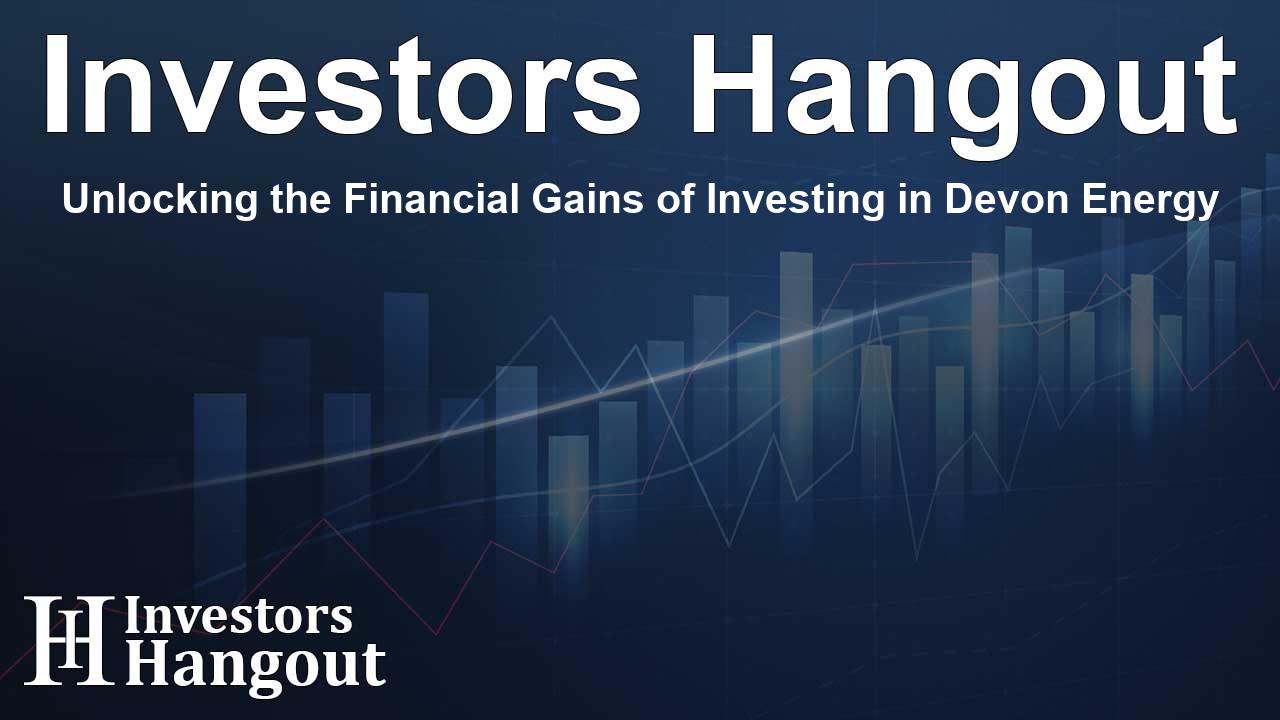Unlocking the Financial Gains of Investing in Devon Energy

Understanding the Growth of Devon Energy Investments
Devon Energy (NYSE: DVN) has made an impressive mark in the energy sector over the past several years. This company has outpaced the general market, achieving an annualized return of 28.09% over the last five years, which demonstrates its effective management and strong business strategy. As of now, the company's total market capitalization stands at an impressive $22.82 billion. Investors often look to past performance to gauge future potential, and Devon Energy’s track record speaks volumes.
Investing in Devon Energy: A Look Back
If a savvy investor had taken a leap of faith and invested $100 in Devon Energy shares five years ago, that investment would now be valued at approximately $364.53. This significant growth is attributed to a consistent upward trend that the stock has experienced, compounded by market factors that have favored the energy sector.
The Power of Compounding Returns
The striking takeaway from this investment journey is the profound effect of compounded returns. Compounding allows the investment to grow exponentially over time, meaning that initial gains create a snowball effect on future earnings. It’s a financial principle that can transform modest investments into substantial wealth, highlighting the importance of patience and strategic investment decisions.
Why Devon Energy Stands Out
What sets Devon Energy apart from its peers? The company's commitment to sustainable practices, dedication to maximizing shareholder value, and proactive approach in navigating the energy landscape are key factors that attract investors. Moreover, Devon has maintained a balanced portfolio of resources and has adapted to changing market conditions, keeping it competitive and resilient.
Future Growth Potential
Looking ahead, Devon Energy continues to strategize for future growth. As the demand for energy evolves, Devon is well-positioned to respond to these changes, potentially increasing its profitability further. Investors are optimistic about the company's innovative projects and diversified resource base, which may provide increased earnings opportunities in the coming years.
Frequently Asked Questions
What is Devon Energy's ticker symbol?
Devon Energy trades under the ticker symbol DVN on the New York Stock Exchange.
How can compounding affect my investments?
Compounding can significantly increase your investments' value over time, as it allows earned returns to generate additional earnings.
What factors contribute to Devon Energy's growth?
Key factors include management efficiency, resource diversification, and adaptation to market dynamics.
Is Devon Energy a good long-term investment?
Many analysts view Devon Energy favorably due to its robust history and future growth strategies, though individual investment decisions should consider personal financial goals.
How can I invest in Devon Energy?
Investing in Devon Energy can be done through stock trading platforms that allow purchasing NYSE-listed shares.
About The Author
Contact Addison Perry privately here. Or send an email with ATTN: Addison Perry as the subject to contact@investorshangout.com.
About Investors Hangout
Investors Hangout is a leading online stock forum for financial discussion and learning, offering a wide range of free tools and resources. It draws in traders of all levels, who exchange market knowledge, investigate trading tactics, and keep an eye on industry developments in real time. Featuring financial articles, stock message boards, quotes, charts, company profiles, and live news updates. Through cooperative learning and a wealth of informational resources, it helps users from novices creating their first portfolios to experts honing their techniques. Join Investors Hangout today: https://investorshangout.com/
The content of this article is based on factual, publicly available information and does not represent legal, financial, or investment advice. Investors Hangout does not offer financial advice, and the author is not a licensed financial advisor. Consult a qualified advisor before making any financial or investment decisions based on this article. This article should not be considered advice to purchase, sell, or hold any securities or other investments. If any of the material provided here is inaccurate, please contact us for corrections.
